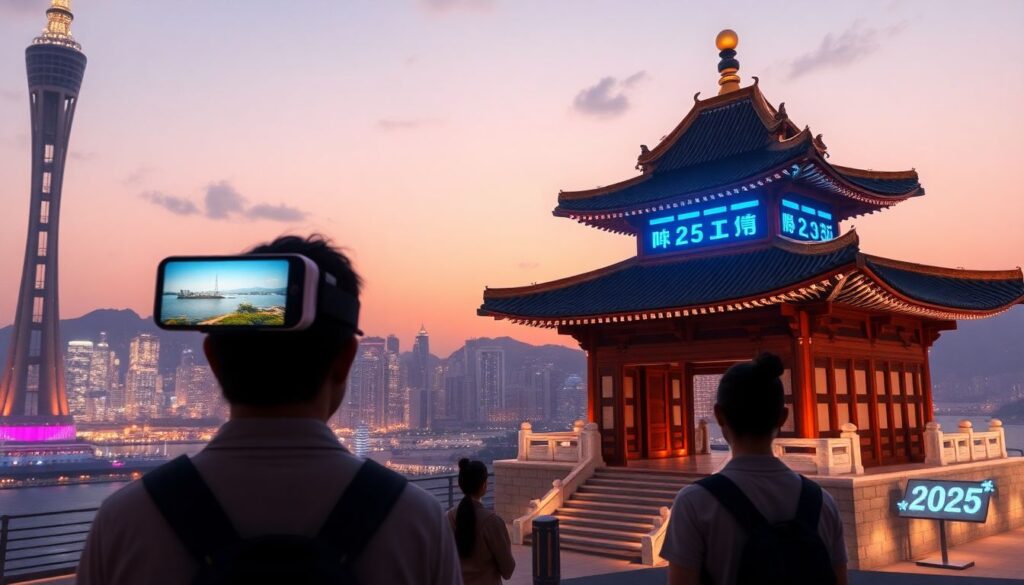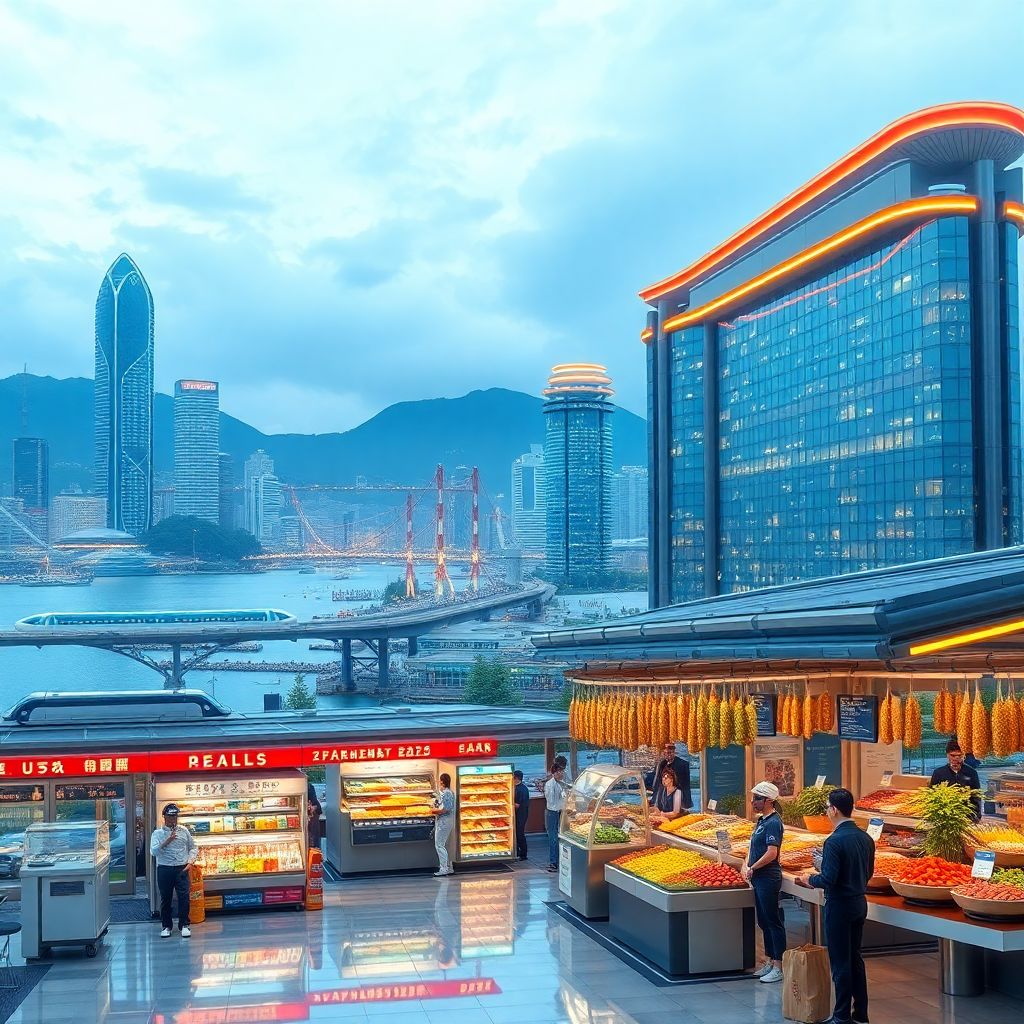Why Busan Is the South Korean City Everyone’s Talking About in 2025
Busan, South Korea’s second-largest city, has long been known for its beaches, seafood, and cinematic flair. But in 2025, this vibrant metropolis is undergoing a transformation that places it at the intersection of tradition and tech-driven modernity. Whether you’re a first-time visitor or a seasoned traveler, there’s never been a more thrilling time to explore this coastal gem. Our detailed Busan travel guide dives into the real experiences, local secrets, and innovations redefining the city today.
Urban Evolution: A City Built for the Future
In recent years, Busan has emerged as a smart city prototype in Asia. With 5G-integrated public transport, AI-powered tourist information booths, and carbon-neutral energy initiatives in districts like Haeundae and Centum City, Busan is reimagining urban life. One striking example is the Eco Delta Smart City, a cutting-edge waterfront development where autonomous buses and smart waste systems are now fully operational.
I personally tested the autonomous shuttle service in the Eco Delta zone last spring. The ride was smooth, timely, and surprisingly human-like in its behavior—stopping gently at crossings and yielding to cyclists. It’s not just a gimmick; it’s the city’s vision of sustainable urban mobility in action.
Technical Spotlight: Eco Delta Smart City
— Total Investment: ₩6.5 trillion (approx. $5 billion USD)
— Area: 2.8 million square meters
— Features: AI-integrated traffic systems, smart water recycling, zero-energy buildings
— Projected full completion: 2030
Things to Do in Busan: The Modern 2025 Edition
While classics like Gwangalli Beach and Gamcheon Culture Village remain must-sees, new experiences have redefined what to do in Busan. For example, the newly opened Sky Capsule—a futuristic monorail along the coast—offers panoramic views of Haeundae like never before. Think of it as a slow-moving spaceship that glides above cliffs and waves.
Then there’s the Metaverse Busan Plaza, launched in late 2024. Located in the Seomyeon district, it blends virtual and physical art spaces. I attended a VR concert there where avatars danced alongside real performers—an experience that challenged everything I knew about live music.
Busan Food Tour: Fusion, Tech, and Tradition
Busan has always been a city of flavors, and in 2025, it’s pushing culinary boundaries. A real highlight from my recent visit was a stop at Jeongwon Lab, a tech-based restaurant in Suyeong where AI chefs collaborate with human cooks. They adjust spice levels in real time based on biometric feedback from diners—yes, really.
Of course, no Busan food tour is complete without sampling the classics: milmyeon (wheat noodles), fresh hoe (raw fish), and hotteok (sweet pancakes) at Jagalchi Market. But even these traditional spots now accept cryptocurrency and use robot servers to handle peak-hour crowds.
Insider Tip: Best AI-Enhanced Dining in 2025
— Jeongwon Lab, Suyeong-gu
— Reservation only via app (biometric ID required)
— Average meal cost: ₩85,000 ($65 USD)
— Signature dish: Personalized spicy jjigae
Busan Hotels: Smart, Stylish, and Seamless
Accommodation in Busan has also entered a new era. Smart hotels dominate the skyline, offering automated check-ins, voice-controlled rooms, and AI concierges fluent in over 20 languages. I stayed at the new Cloud9 SkyHotel near Gwangalli Beach—every room had a sea view, personalized lighting, and even sleep-optimizing beds that monitor your REM cycles.
For travelers who prefer eco-luxury, Busan hotels like The Green Dome offer accommodations powered by solar panels and with interiors made of recycled ocean plastics. It’s comfort without compromise.
Busan Attractions With a Futuristic Twist

Busan attractions in 2025 blend visual spectacle with immersive tech. At the revamped Busan Tower, visitors use AR glasses to explore the city skyline through historical overlays—imagine seeing the port in 1950 next to a 3D model of the 2025 harbor.
Equally impressive is the newly digitalized Beomeosa Temple experience. Visitors receive an AI guide that teaches Buddhist principles while leading them through meditative AR environments layered onto the real temple grounds. It’s spiritual tourism like you’ve never seen before.
Technical Spotlight: AR Tours at Beomeosa
— Devices: AR glasses provided on-site
— Languages supported: Korean, English, Japanese, Mandarin
— Real-time guidance with AI monks
— Visitor satisfaction survey (2025): 94% positive feedback
Real Stories: What Travelers Are Saying

In March 2025, I interviewed Clara, a UX designer from Amsterdam, during her second trip to Busan. “In 2019, Busan felt like a charming coastal city. In 2025, it feels like the future—seamless, inclusive, and always surprising,” she told me while sipping a lab-grown oyster cocktail (yes, that’s a thing now) at a pop-up beach bar in Songdo.
Another traveler, Raj from Mumbai, praised the city’s digital infrastructure: “I never touched a paper map. From booking a hanbok rental to getting directions to Busan attractions, everything worked via facial recognition and voice commands.”
Final Thoughts: Why Busan Deserves a Spot on Your 2025 Travel List
Busan in 2025 isn’t just a destination—it’s a vision of what cities can become. It’s where smart technology meets deep-rooted culture, where the past and future coexist in every alley and skyline. Whether you’re here for the food, the innovation, or just the ocean breeze, Busan offers an experience that keeps evolving with every visit.
Use this Busan travel guide to navigate the new wave of experiences, and don’t be surprised if it becomes your favorite city in Asia.

